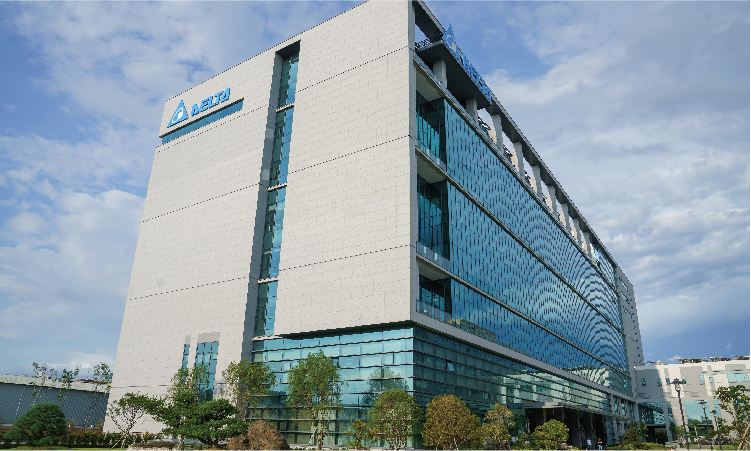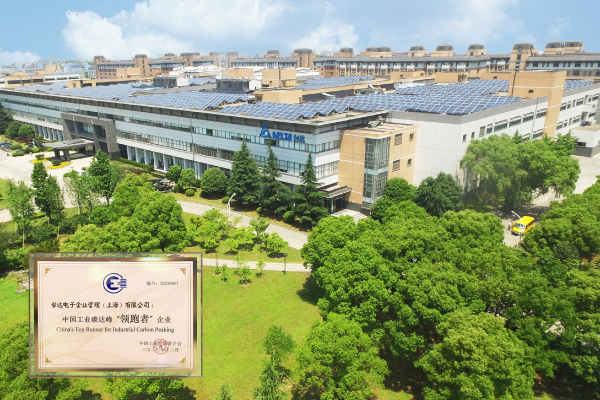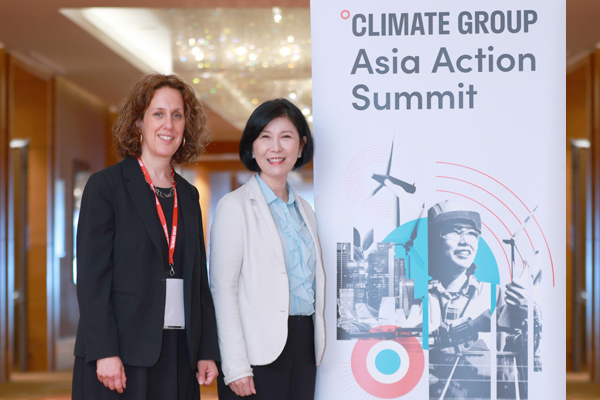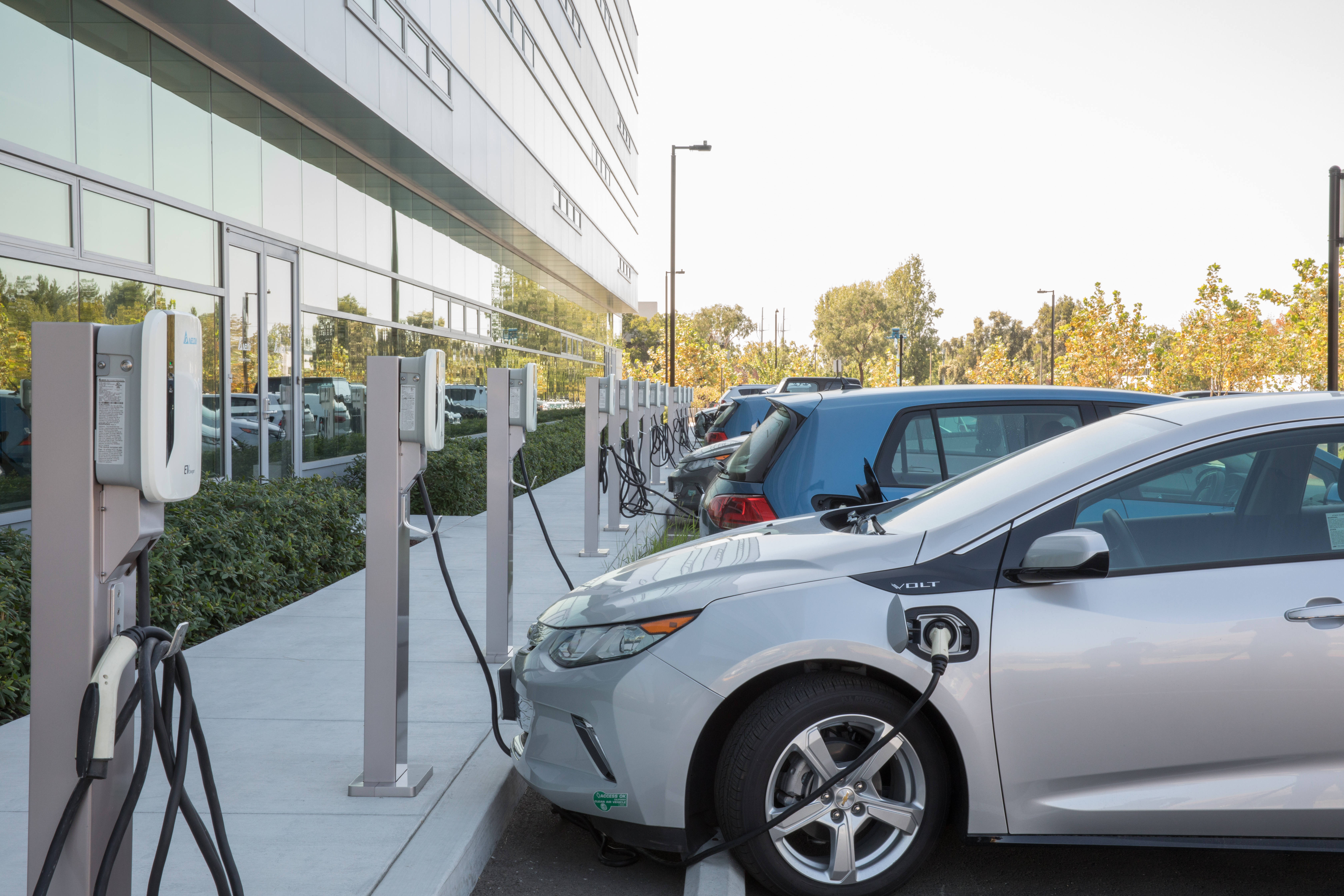
Delta employs an internal carbon pricing mechanism as a crucial tool to drive its net-zero strategy and carbon management.
Carbon pricing mainly consists of two types: emissions trading systems (ETS) and carbon taxes/fees. Existing international carbon pricing policies cover approximately 23% of global carbon emissions, making them crucial for achieving carbon reduction goals. More and more companies are also adopting internal carbon pricing (ICP), incorporating emission costs into investments and decisions. This approach not only encourages emissions reduction across departments but also supports the transition to a low-carbon and green investment environment.
Delta's ICP supports 5 carbon reduction strategies with a carbon price of USD 300 per metric ton
Delta has long been committed to addressing climate change and global warming by actively pursuing energy conservation and carbon reduction. The company firmly believes in the concept of "pricing carbon emissions" and, as early as 2014, in line with international trends, established internal carbon prices for various regions based on Delta's global carbon markets and regulations. This internalization of the external costs of carbon emissions allows Delta to proactively respond to the impacts of climate change. In 2017, Delta set a uniform global carbon price of USD 50 per metric ton and introduced the concept of Carbon Return on Investment (CROI). When making energy-saving investment decisions, the carbon reduction benefits are considered one of the evaluation criteria.

Delta's ICP supports five carbon reduction strategies towards net-zero, including adopting renewable energy, promoting green buildings, and investing in low-carbon innovation.
In 2021, building upon the experience of achieving SBT carbon reduction targets four years ahead of schedule, Delta further committed to achieving the RE100 goal and carbon neutrality by 2030. It aligns with the global path to limit global warming to 1.5°C and established a long-term strategy and target of achieving SBT Net-zero for its global operations by 2050. To actively realize its net-zero commitment, seize green business opportunities, and with the support of its management team, Delta formally implemented an internal carbon fee mechanism globally. This initiative drives support for five carbon reduction strategies to achieve net-zero: promoting energy-saving solutions, adopting renewable energy, promoting green buildings, investing in low-carbon innovation, and investing in carbon offsetting and permanent carbon removal. Delta set a consistent internal carbon price of USD 300 per metric ton globally, based on both internal and external environmental and social costs at its production sites. This price aligns with the expected carbon price for 2030 to limit warming to 1.5°C as outlined in the IPCC Sixth Assessment Report (IPCC AR6).
Establishing and promoting the ICP mechanism: a challenge and cross-departmental collaboration for positive sustainable circularity
As Delta's operations span the globe, constructing an ICP management mechanism requires the alignment of all business units and even M&A companies. This involves significant challenges, ranging from changes to the existing operational and management framework, the redesign of financial systems and reports, to the establishment of new systems and concepts. Through continuous communication and collaboration between major departments such as Corporate Sustainability, Finance, Procurement, and Information, Delta officially implemented ICP as a strategic management tool across its global operations. Under this system, carbon fees of USD 300 per metric ton of carbon emissions are charged to business units, and these fees are then channeled into a global carbon fund. This fund is subsequently invested in renewable energy technology development, resource management, and low-carbon innovation, fostering a positive cycle of sustainability.

Delta's carbon fund is used for on-site resource management, including energy conservation, water conservation, and waste reduction initiatives.
To effectively drive ICP, we have established a comprehensive management mechanism, including internal carbon fee pricing rules, carbon fee calculation criteria, and carbon fee usage regulations. These measures, combined with departmental performance, are periodically reviewed by the Delta ESG Committee to assess the utilization and outcomes of carbon fees.
Delta's carbon fund primarily serves to catalyze internal behavioral changes and accelerate carbon reduction actions. Its three main application areas are renewable energy and energy technology development, energy and resource management, and low-carbon innovation and initiatives. Thus, projects such as self-generated solar facilities, energy-saving initiatives within our facilities, and research and development of circular economy applications are among the beneficiaries of the carbon fund. We have also established clear criteria for reviewing carbon fund proposals. Proposals from various units are subject to evaluation by internal expert panels, depending on the specific applicationsubject, such as renewable energy, energy conservation, water conservation, waste reduction, low-carbon transportation, and energy storage. After rigorous assessment, considering the long-term environmental benefits before and after investment, the proposals are submitted to the management team for budget approval, and the expenses are officially disbursed from the carbon fund.
ICP drives carbon reduction and encourages innovation: Delta's revenue growth detached from carbon emissions
2022 marked the first year of Delta's global implementation of the Internal Carbon Fee mechanism. From various performance indicators and figures, it is evident that ICP has effectively driven progress towards achieving the net-zero goal. One of the most significant achievements is the 13.5% reduction in direct and indirect greenhouse gas emissions (market-based) across Delta's global locations compared to 2021. When considering the carbon reduction effectiveness of internal initiatives related to energy conservation and the utilization of self-generated renewable energy, 2022 witnessed a milestone where revenue growth became decoupled from carbon emissions. The carbon emission reduction in regional terms reached 16.2% (Note 2).
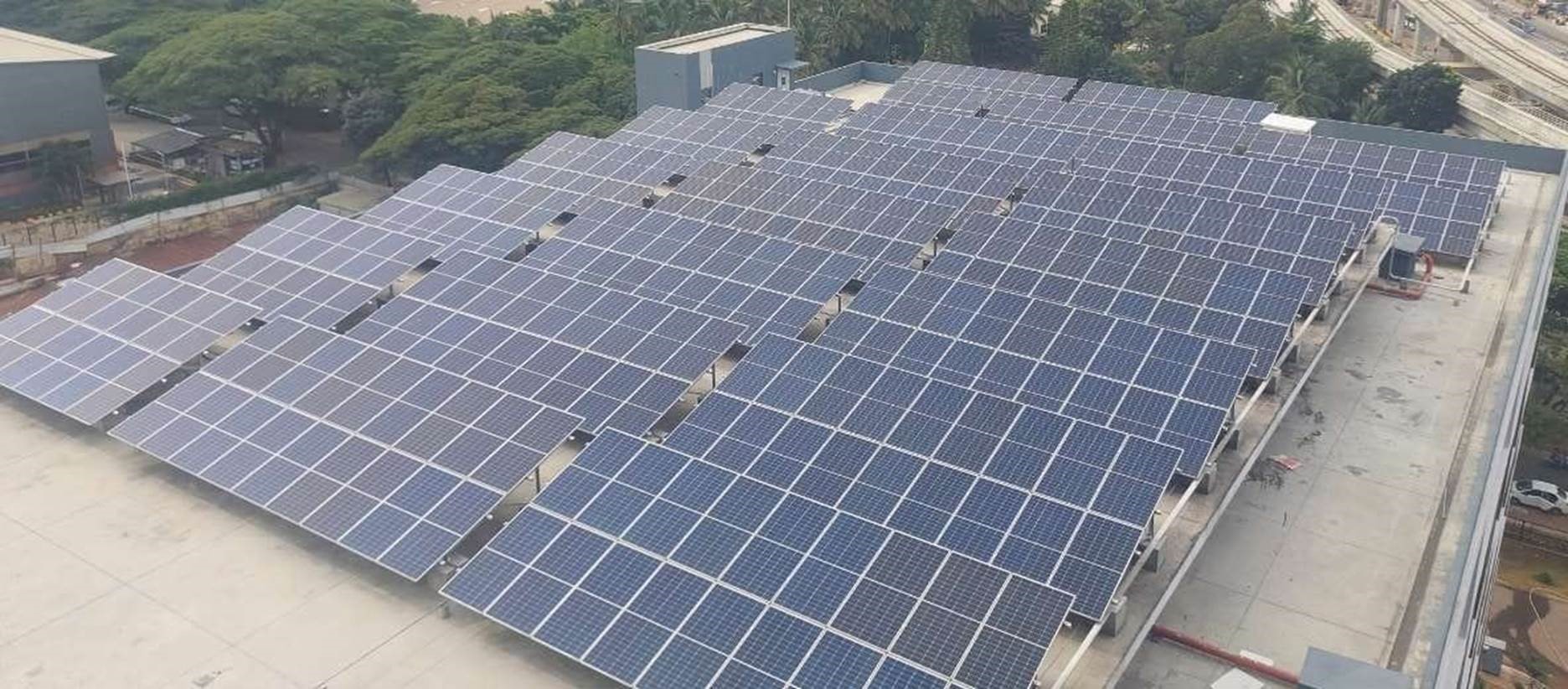
With the support of ICP, Delta's newly constructed facility in India actively promotes the application of renewable energy.
Throughout the year, Delta's global locations continued to implement projects to promote energy conservation actively. In 2022, a total of 309 energy-saving projects were executed, surpassing the previous year's 285 projects, resulting in energy savings exceeding 40 million kWh, equivalent to a carbon reduction of over 30,000 metric tons. Furthermore, Delta strategically aligned various types of renewable energy with the ICP system, encouraging locations to prioritize self-generated and consumed renewable energy and bundled renewable electricity and certificates.. Through the collective efforts of regional teams, the use of renewable electricity at global business locations reached 63% in 2022, steadily progressing toward the target of attaining 100% renewable electricity at global operation sites by 2030.
The ICP mechanism also encourages the development and investment in low-carbon innovation, uncovering business opportunities from technological advancements. As an example, the Renewable Energy Matching Program, developed with support from the carbon fund in 2022, addresses the challenge of matching renewable energy while the business navigating the transition to a low-carbon future, reducing the risk of resource inefficient allocation. This program serves as one of the business opportunity cases developed through ICP for low-carbon innovation.
Under the long-term goal of achieving net-zero through science-based carbon reduction, Delta's ICP mechanism stands as a critical tool in driving climate transformation and carbon management. Its promotion and implementation have drawn the collective efforts of all employees, enabling Delta to effectively respond to the impacts of climate change, future international regulations, and trends. Simultaneously, Delta continues to maintain resilience and takes concrete actions towards the net-zero goal, expanding green business opportunities amidst the climate crisis.
Note 1: In 2021, Delta reduced its carbon intensity by 71% compared to 2014, achieving its science-based target (SBT) of a 56.6% reduction in carbon intensity by 2025, four years ahead of schedule. Delta has further established a long-term strategy and goal to achieve SBT Net-zero carbon reduction for its global locations by 2050. By 2050, Delta aims to reduce Scope 1+2+3 greenhouse gas emissions by 90% compared to the 2021 baseline, with short-term targets of a 90% reduction in Scope 1+2 emissions and a 25% reduction in Scope 3 emissions by 2030.
Note 2: Location-based: Calculates carbon emissions using the local grid average coefficient. Market-based: Calculates carbon emissions based on the electricity sources chosen by the company (e.g., specific power companies, generation methods, environmental benefits, etc.).






